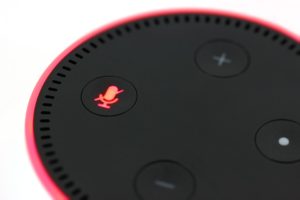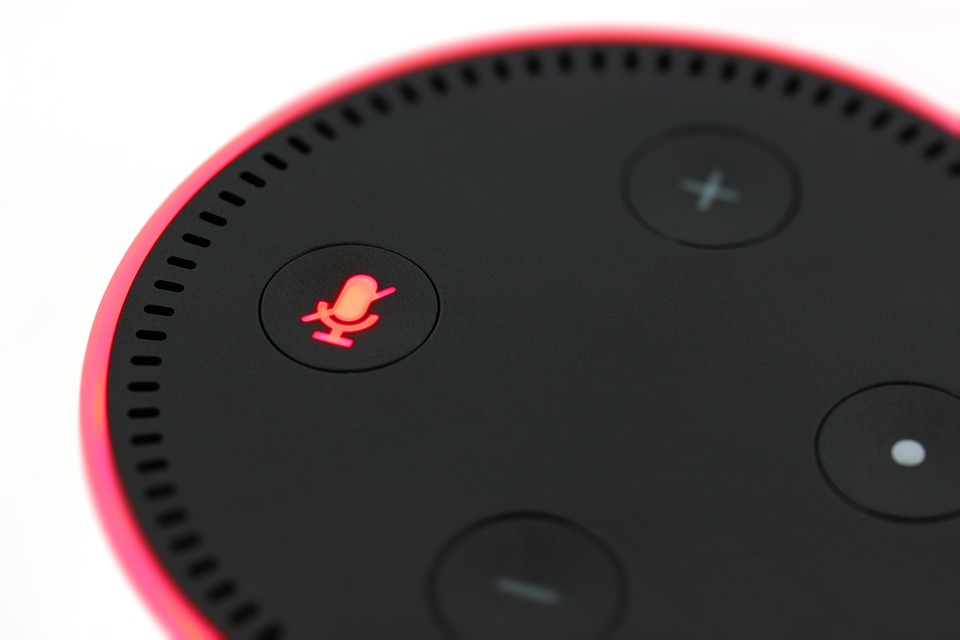
As we inch closer to the holiday season and great shopping deals arise, many of you may be considering adding smart functionality to you or a loved one’s home by purchasing a smart speaker such Amazon Echo or Google Home (for a comparison, check out our post How Smart is Your Home?). But in an age of always-connected devices, there is a growing concern over privacy including the fear that the manufacturers themselves or a third party may be able to listen to and track everything that is said. In order to help make your holiday shopping a bit less stressful, let’s discuss the truth about smart speakers – how smart speakers operate and how you can maintain control over your data.
For the purpose of discussion, we will be focusing on the two leaders in the smart speaker industry. Those being Amazon Echo and Google Home. Within anywhere you’ve traveled that includes the use of modern technology, you may have heard someone use the phrase “Hey Google” or “Alexa” followed by a question or command in order to incite a response. This may be something as simple and non-personal as “Hey Google, what’s the weather for tonight?” or something unique such as “Alexa, what is on my calendar for today? And turn on my kitchen lights.” With nearly no delay, the smart speaker will respond with an answer or acknowledgement of your command. There are no button presses needed in order to initiate this conversation. This is due to the use of what is referred to as a “Hotword” which is a word or command that is listened for constantly in order to activate the conversation mechanism. In the case of Amazon Echo, the default Hotword is “Alexa” while Google Home utilizes “Hey Google”.
But if the speaker is always listening for the Hotword, doesn’t that mean it hears and listens to everything you say? And what is it doing with that data? These are some of the most common questions regarding smart speakers so allow us to address them individually.
Question: Are smart speakers listening to everything you say?
Although the answer to this question is technically yes, the details are not nearly as scary as it seems. Let’s review the technical end of how the Hotword comes into play. Both Amazon Echo and Google Home are in fact continuously listening to audio within their reach. However, the important note regarding this topic is that all data remains within the physical speaker and is never transmitted on the internet anywhere unless its Hotword is triggered. As you speak, your smart speaker processes the data it hears and is continuously deleting its saved data right after it verifies that you have not spoken the Hotword. None of that data leaves your home. Only commands explicitly directed at your speaker are transmitted to Google or Amazon’s remote systems which is necessary in order to process your request and return a result. After your command has been processed and your answer has been provided, no additional data will be sent for processing until the Hotword is spoken again.
Recently, both Google and Amazon have enabled a feature in their respective speaker that allows for multiple commands to be processed in a more natural conversation form instead of needing to trigger the Hotword for each request. “Continued Conversation” (Google) or “Follow-Up Mode” (Amazon) adds extra data transfer in order to maintain the conversation flow. Following your conversation with your speaker, the device will continue listening until one of the following conditions occur:
1. Approximately eight non-verbal seconds have passed
2. The conversation is ended with a phrase such as “Thank you”, or
3. Your speaker detects that the new audio not related to the conversation.
In any case, data transmission ceases, awaiting your next Hotword request. This additional mode is optional for both speakers and is not necessary to get full use out of its functionality.
Question: What is Google/Amazon doing with my data?
When a command or request is initiated, your smart speaker will transmit the audio recording of that command to Google or Amazon for processing. Both companies do retain their respective data recordings for historical purposes as well as for developing quality enhancements. However, both Google and Amazon provide you with access to your recordings where you may delete any whenever you would like. Below are instructions for each platform.
Amazon Echo – Within your Amazon Echo companion app on your cell phone, access the Settings menu and select the “History” menu. You will have access to your saved recordings in the cloud and can act accordingly such as deleting items. This may also be performed on the web at https://www.amazon.com/alexaprivacy
Google Home – You may log into your Google account at https://myactivity.google.com/ to manage your recordings including the ability to delete them.
Google and Amazon also may at times process data from your stored recordings in order to better cater the ads that they present to you. The recordings are never sold to any third party advertisers.
As the stress of holiday shopping gets underway, you can rest assured that adding a smart speaker into the home of yourself or a loved one will not ultimately compromise the safety or security of your personal data. Although any technology can potentially become susceptible to vulnerabilities over time, both Google and Amazon have teams dedicated to protecting you from such occurrences.
In the same regard, our team here at Diligex works hard to continuously maintain and improve your network and data security. Do you have any questions regarding our services or want to inquire about how Diligex can help your company? Reach out to us at https://diligex.com/contact/ and a member of our team will be in touch.
Happy Holidays from the Diligex team!

